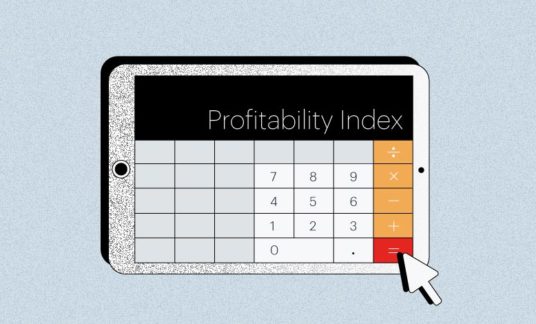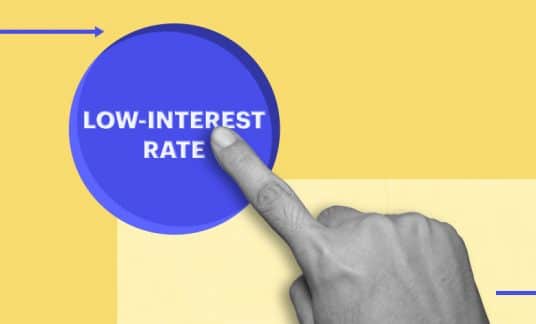If your business loan doesn’t have what the Internal Revenue Service (IRS) considers a fair market rate for interest, you can be on the hook for imputed interest.
Let’s look into what is imputed interest, and how it could impact loans you give or receive.
What Is Imputed Interest?
Imputed interest is the rate the IRS assigns to a loan with a significantly below-market rate. Even when no actual interest has been charged, the IRS uses the imputed rate of interest to tax the amount as if it was paid.
How Does Imputed Interest Work?
Imputed interest rates come into play in various scenarios. One of the most common is when no-interest loans are made between family members.
For example, parents might loan their daughter $100,000 with no interest. The IRS would compare the interest rate paid to the short-term federal interest rate. The federal interest rate is a minimal threshold level the IRS expects short-term loans to carry. It’s based on tables published by the IRS, which are updated monthly.
As of September 2020, the short-term federal interest rate hovers around 0.14% annually. The revenue service would determine that the proper amount of interest paid would be $1,400 ($100,000 x 0.14%) annually. Even though no interest was paid, the parents would be responsible for declaring the imputed rate and paying taxes on it.
When Are You Responsible for Imputed Interest?
It’s not just zero-interest loans that are impacted by the imputed interest rules. If your business makes or receives below-market interest loans, you also can be taxed.
Owners of privately held companies might loan money to their companies; this is particularly common in the startup phase. Shortfalls might be funded by the owner’s personal funds rather than taking out a loan from a financial institution. These are usually recorded as liabilities on the company balance sheet. The IRS will review these transactions closely to ensure these are actual loans and not just a way to provide compensation, dividends or equity contributions.
When businesses have profits available, they might decide to loan money to shareholders. They are usually recorded as an asset on the company balance sheet. If the loans are at below-market interest, the IRS might classify them as compensation, equity transactions or dividends. If business loans are more than $10,000 to any shareholder, you’re required to charge what the IRS determines as a fair market rate. If you don’t, the shareholders will be subject to the imputed interest rules.
The IRS also uses imputed interest rates to determine if payments need to be made on zero-interest bonds. For example, zero-coupon bonds are sold at less than face value and mature at par value. An $800 zero-coupon bond that will pay out $1,000 when it matures in 10 years means recipients will have to pay taxes on the $200 gain.
Why Was Imputed Interest Developed?
The IRS requires all loans— regardless of the parties involved—to feature rates that match minimum market conditions.
They developed the concept to collect taxes on this imputed income. It was also implemented to stop money-laundering through no-interest loans.
The Tax Reform Act of 1984, more commonly known as the Deficit Reduction Act, codified the concept of imputed interest and mandated a minimum interest rate for any loan made below a certain threshold.

What Kinds of Loans Have Imputed Interest?
So-called “gift loans” are subject to an imputed rate of interest. This applies to loans made with zero-interest or below-market interest rates. In addition, any loan that was determined to be made specifically to reduce someone’s tax liability will be subject to the imputed interest rule.
The imputation of interest would also be applicable to other types of loans, including:
- Loans a company makes to shareholders
- Compensation-related loans, such as loans from an employer to one of its employees or contractors
- Loans to qualified continuing care facilities pursuant to a contract, subject to certain thresholds
Imputed interest applies to gift loans, demand loans and term loans.
- Gift Loan: Any zero-interest or below-market loan. The IRS recognizes the discounted interest (“foregone interest”) as a gift. The difference between the actual interest rate charged and the applicable federal rate (AFR) is the foregone interest rate, which is subject to the imputed rate of interest.
- Demand Loan: A loan that is payable in full at any time upon demand by the lender.
- Term loan: A loan that is payable at a future date of determined length.
What Are the Exceptions to the Imputed Interest Rule?
The IRS does recognize imputed interest rule exceptions, including gift loans of less than $10,000 (as long as the loan isn’t used to buy assets that produce income). This prevents people from, for example, taking a loan and drawing interest on it from a bank.
The same rule applies to loans of less than $10,000 from employers to employees and shareholders, assuming they weren’t made to avoid paying taxes.
In Publication 550, the IRS also described loans without significant tax effect, including:
- Loans from a lender that are offered to the general public and are consistent with normal business practices. These might include things such as no-interest financing for furniture or an auto loan, or a waiver of interest on credit cards during an introductory period.
- Student loans and other government-subsidized loans.
- Loans that are used for the relocation of an employee.
How To Calculate Imputed Interest
The IRS considers a below-market loan any demand loan that carries interest less than the applicable federal rate. It also applies to term loans if the amount loaned exceeds the present value of all payments due under the loan.
If you’re wondering what is the current IRS imputed interest rate, the IRS publishes the rate each month. These prescribed rates are to be used for reporting federal income taxes. Known as the applicable federal rates (AFRs), the rates are available on the IRS website. They provide rates for short-term, midterm and long-term loans.
- Short-Term Loans: Loan terms of 3 years or less, including demand loans
- Midterm Loans: Loan terms between 3 years and 9 years in length
- Long-Term Loans: Loan terms greater than 9 years
When are you responsible for imputed interest? If the loan has a zero-interest rate, or a rate lower than the AFRs, you will be responsible for calculating the imputed interest and paying taxes on the amount. To do this, report your total imputed interest income on your tax return. This amount is then added to your taxable income for the year.










